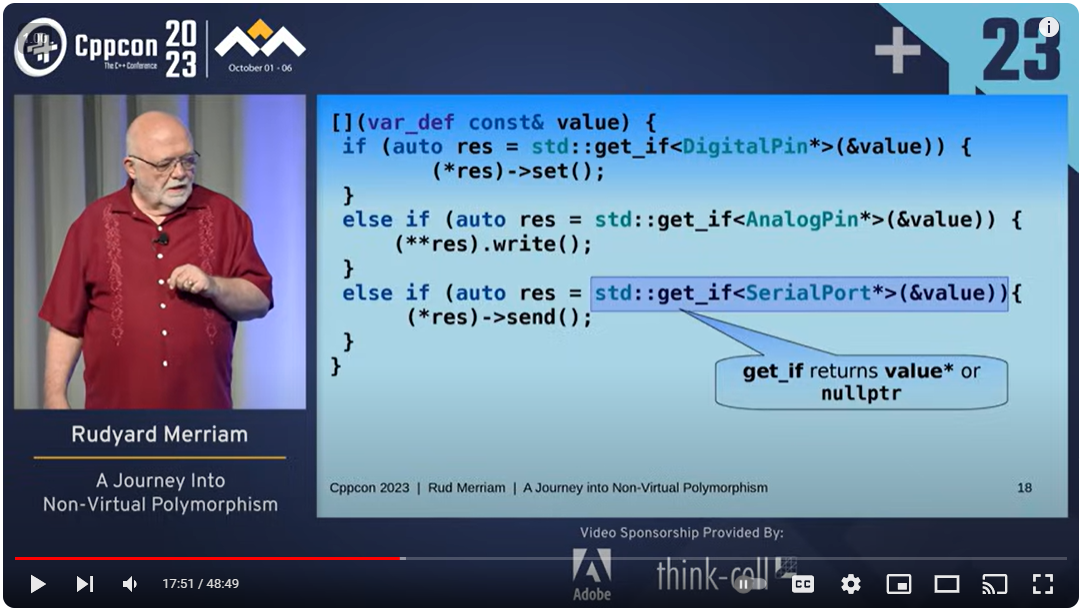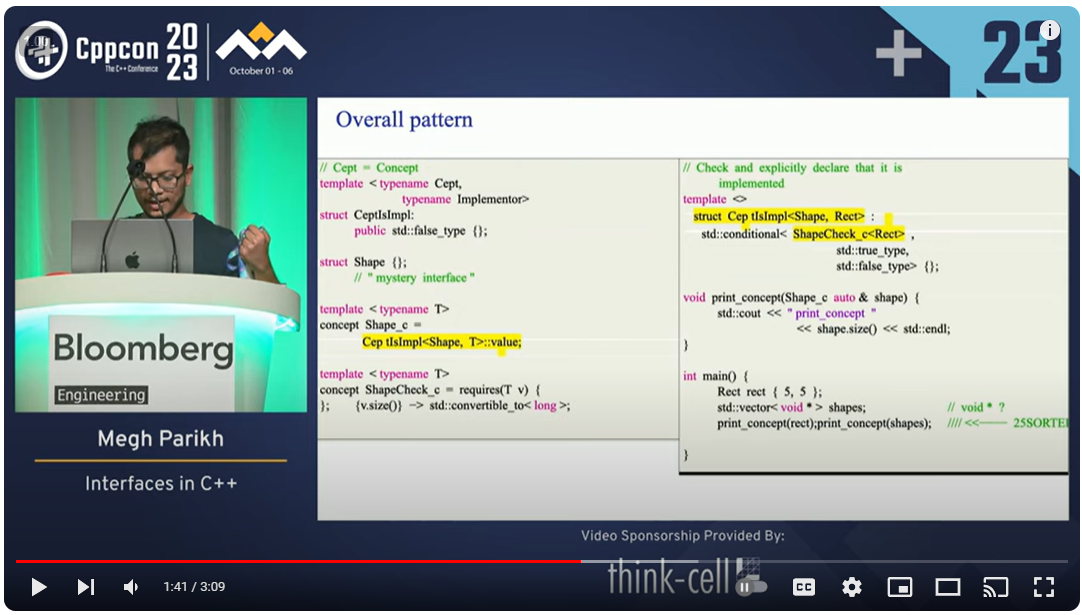CppCon 2023 A Journey Into Non-Virtual Polymorphism in C++ -- Rudyard Merriam
 Registration is now open for CppCon 2024! The conference starts on September 15 and will be held in person in Aurora, CO. To whet your appetite for this year’s conference, we’re posting videos of some of the top-rated talks from last year's conference. Here’s another CppCon talk video we hope you will enjoy – and why not register today for CppCon 2024!
Registration is now open for CppCon 2024! The conference starts on September 15 and will be held in person in Aurora, CO. To whet your appetite for this year’s conference, we’re posting videos of some of the top-rated talks from last year's conference. Here’s another CppCon talk video we hope you will enjoy – and why not register today for CppCon 2024!
CppCon 2023 A Journey Into Non-Virtual Polymorphism in C++
by Rudyard Merriam
Summary of the talk:
Join me on an introductory journey into polymorphism that doesn't use class inheritance and virtual functions. I'll share my amazement at how polymorphism permeates C++. Then we'll visit the long-used Curiously Recurring Template Pattern (CRTP) with its modernization using implicit this.
Do you like lambdas? So does the override pattern, which uses them to handle std::tuples and std::variants with std::apply and std::visit.
Want to walk through a container of disparate types invoking their functions? You'll see this and all the above in code examples galore.
Afterward, you'll be eager to learn more on your own!

 In our previous discussion, we explored the intricacies of stateful but coalescing update notifications, shedding light on the pivotal role of the UI thread in implicit serialization. However, what if this luxury of implicit synchronization is absent? Delving into an alternate version of our solution, we confront the looming specter of race conditions and the necessity for meticulous thread management to ensure seamless operation. Join us as we navigate the complexities of thread synchronization and embark on a quest to refine our approach to asynchronous work handling.
In our previous discussion, we explored the intricacies of stateful but coalescing update notifications, shedding light on the pivotal role of the UI thread in implicit serialization. However, what if this luxury of implicit synchronization is absent? Delving into an alternate version of our solution, we confront the looming specter of race conditions and the necessity for meticulous thread management to ensure seamless operation. Join us as we navigate the complexities of thread synchronization and embark on a quest to refine our approach to asynchronous work handling.  Registration is now open for CppCon 2024! The conference starts on September 15 and will be held
Registration is now open for CppCon 2024! The conference starts on September 15 and will be held  Another meeting, another slew of potential changes to standard C++. In this recap, I’ll summarize the working draft’s most significant changes, spotlight my favorite proposal at the meeting, Member customization points for Senders and Receivers, and discuss a handful of notable developments.
Another meeting, another slew of potential changes to standard C++. In this recap, I’ll summarize the working draft’s most significant changes, spotlight my favorite proposal at the meeting, Member customization points for Senders and Receivers, and discuss a handful of notable developments. Registration is now open for CppCon 2024! The conference starts on September 15 and will be held
Registration is now open for CppCon 2024! The conference starts on September 15 and will be held  std::format allows us to format values quickly and safely. Spencer Collyer demonstrates how to provide formatting for a simple user-defined class.
std::format allows us to format values quickly and safely. Spencer Collyer demonstrates how to provide formatting for a simple user-defined class.